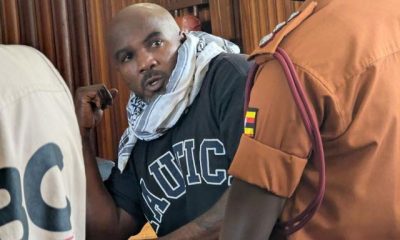Law
Why Government May Extend Jail Terms for Civil Debtors Amid Prison Congestion Concerns
The Uganda Law Reform Commission (ULRC) has proposed extending the maximum jail term for civil debtors from six months to one year, a recommendation aimed at strengthening the enforcement of civil debts while balancing the rights of lenders and borrowers. The proposal was presented to Parliament’s Human Rights Committee on Thursday, August 14, 2025, by ULRC Assistant Commissioner Jeroline Akubu and Commission Secretary Jackie Akuno.
The recommendation draws on findings from two ULRC studies. The first, conducted in the 2005/06 financial year, revealed that imprisonment remained a widely used method of enforcing civil judgments, though critics argued that it was inhumane, stigmatised debtors, and imposed additional costs on lenders, who were required to cover the upkeep of imprisoned debtors.
A more recent study in the 2022/23 financial year recommended stricter measures for cases where debtors were employed or had other means of income but refused to pay, engaged in delay tactics, obstructed proceedings, intended to leave the court’s jurisdiction, or could settle debts but neglected to do so.
Jeroline Akubu told MPs that under the current Civil Procedures Act, detention for failure to pay civil debt is permissible if the debt exceeds Shs100. “The time provided of six months does not mean the person must be imprisoned for six months—it can be as short as one day at the discretion of the judicial officer,” she explained. “Our recommendation extends this up to one year, still at the discretion of the judicial officer.”
Akubu argued that scrapping imprisonment for civil debtors altogether, as suggested by the Uganda Human Rights Commission, would be impractical. “We believe that the person who has lent the money has rights. If we remove imprisonment, what other option do we provide the lender?” she asked.
Commission Secretary Jackie Akuno added that the law provides for arbitration and reconciliation, which parties can explore. However, she noted that civil debtors often display stubbornness. “Even after staying in prison for a day or two, some debtors are found to have assets they could sell. Yet we cannot leave lenders to take the law into their own hands,” she said.
Civil Debtors in Prison: Numbers and Concerns
Deputy Commissioner General of Prisons Samuel Akena informed MPs that as of August 14, 2025, 476 civil debtors were in prison—359 males and 117 females. Many of these cases involve individuals who have borrowed from moneylenders, locally known as loan sharks.
Uganda’s prison population currently stands at 56,517, more than double the approved capacity of 22,419. The prison service faces severe staffing shortages, with 14,895 personnel against an established requirement of 39,462.
Akena acknowledged that prison congestion is a major challenge but emphasised that addressing crime at its root—through rehabilitation and societal development—is essential. He also clarified that the prison system does not differentiate between VIPs and ordinary citizens. “Whether FDC president or what, in prison, everyone is treated as a prisoner,” he stated, noting that no special privileges are extended based on social or political status.
The proposal is expected to spark mixed reactions. Supporters argue that extending jail terms will enhance compliance with civil debt obligations, protecting lenders and improving accountability. Critics, however, contend that longer jail terms may exacerbate prison overcrowding and disproportionately affect vulnerable debtors who may be unable to repay due to economic hardship.
The debate comes amid broader discussions on modernising Uganda’s legal system and improving the administration of justice. The ULRC, a constitutional body established under Article 248(1), is mandated to review and recommend reforms to ensure that laws remain effective, modern, and fair.
The proposed extension of jail terms for civil debtors highlights the tension between protecting creditors’ rights and addressing human rights concerns. With Uganda’s prison system already over capacity, lawmakers face the challenge of balancing enforcement of civil debt laws with broader issues of justice, rehabilitation, and humane treatment of offenders. The Human Rights Committee is expected to deliberate further before making recommendations to Parliament on the proposed changes.
Comments

























